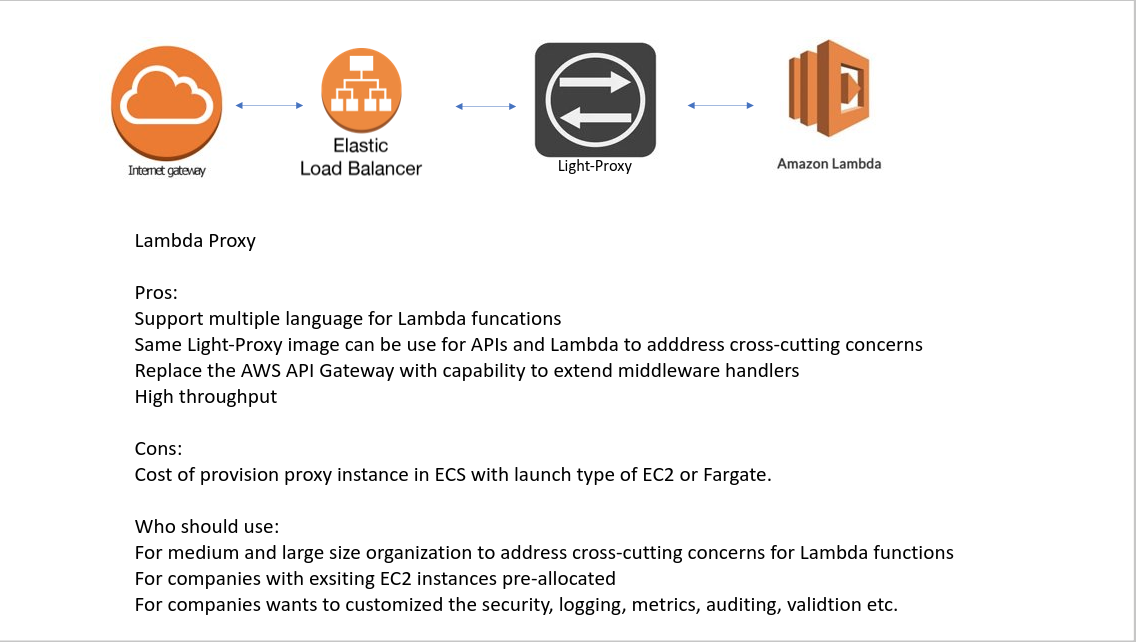AWS Lambda Proxy
Light-aws-lambda provides two different ways to address cross-cutting concerns for Lambda functions. For enterprise users, it is recommended to use the light-proxy to replace the AWS API Gateway.
Lambda Proxy

Lambda Invoker Handler
This is the handler that should be included in the light-proxy as the last handler at the request/response chain. It means that the light-proxy will invoke the corresponding Lambda function only after all cross-cutting concerns have been addressed.
For details, please refer to the lambda-invoker handler in the cross-cutting concerns section.
Lambda Modules
Although most cross-cutting concerns are addressed in the light-proxy, there is still something that needs to be handled in the lambda function.
Currently, the only feature that I can think of is the MDC injection for the correlationId, traceabilityId or OpenTracing tracerId for distributed tracing to cover the Lambda functions.
To prepare for the future extension, we created lambda-interceptor module that contains an interceptor class to intercept requests and responses before and after the lambda business handler is called.
Shared Proxy
The way to use the light-proxy for Lambda functions is to start with an OpenAPI specification file openapi.yaml or openapi.json to scaffold a project. Normally, there would be several Lambda functions in the project as each endpoint will map to a Lambda function.
To save the cost, you can have one proxy instance to manage the cross-cutting concerns for several APIs. To do that, you need to merge several openapi.yaml or openapi.json files together to create a big specification file. You need to make sure that there are no duplicated endpoints between multiple APIs. openapi-bundler is the tool to merge multiple OpenAPI specifications.
Whit the specs merged, we need to think about merging the handler.yml file with all the endpoints. If all endpoints are sharing the same default chain, you can use wildcard paths to define the endpoints.
handler.yml
.
.
.
paths:
path: '/*'
method: 'GET'
exec:
- default
path: '/*'
method: 'POST'
exec:
- default
path: '/*'
method: 'PUT'
exec:
- default
path: '/*'
method: 'DELETE'
exec:
- default
path: '/*'
method: 'PATCH'
exec:
- default
.
.
.